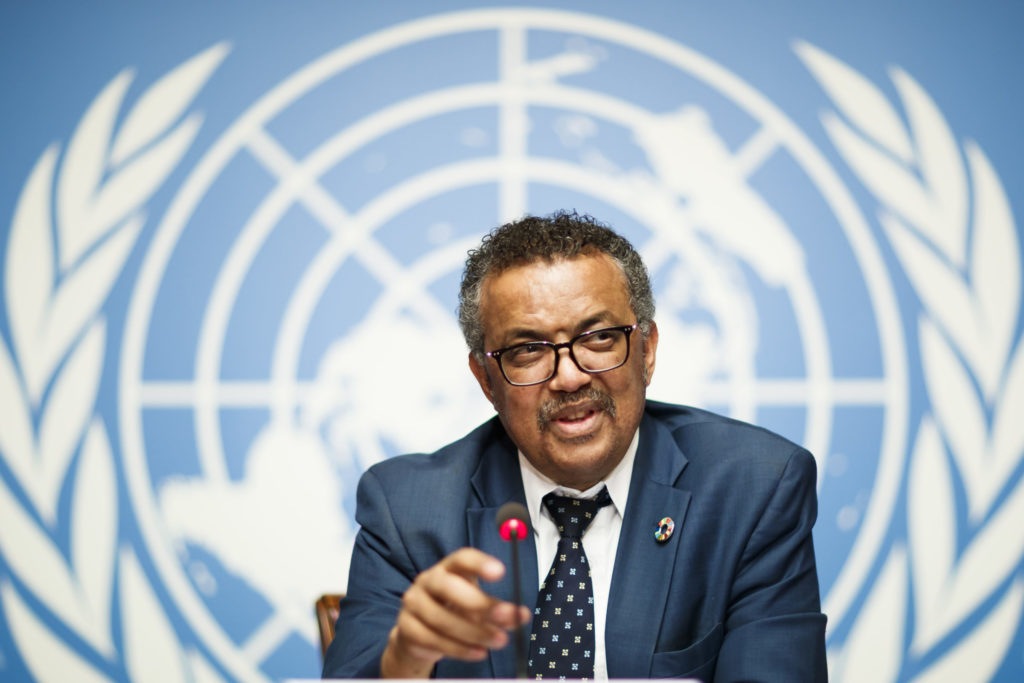RIO DE JANEIRO, BRAZIL – The coronavirus pandemic is accelerating. Tedros Adhanom Ghebreyesus, Director-General of the World Health Organization (W..HO.), has been repeating for some days that countries must not be careless and that restrictive measures are still required. “We are in a new and dangerous stage,” he said.

Every day over 150,000 new cases around the world continue to be confirmed. Almost half come from the American continent, but the figures from South Asia and the Middle East are also worrying. Over two-thirds of the latest deaths have occurred on the American continent. The United States now totals 120,000 deaths. In Brazil, it’s over 50,000. Mexico records over 22,000 victims.
The W.H.O. warned last week about the uncontrolled advance of the virus, when it reached 150,000 cases in one day for the first time. But the situation has deteriorated since then. On Sunday it reached 183,000, the highest number of new cases since the pandemic began.
To illustrate the rate at which the coronavirus is developing, the W.H.O. chief used a very graphic comparison on Monday: almost nine million cases have been recorded so far in the world. The first million came three months into the pandemic. The last million have been recorded in the past eight days. “It seems that every day a new and dark record is reached,” Ghebreyesus said in his intervention.
While some territories are at the peak of the first wave, with sharp increases in transmission, others are concerned about localized outbreaks or the coming of second waves. These are countries that believed they had overcome the worst of the epidemic, that have confined their population and are gradually trying to recover some normalcy by opening up their economies. “All countries now face a delicate balance between protecting their inhabitants and minimizing the social and economic damage,” noted the head of the agency.
South Korea, one of the countries that most effectively managed to emerge from the first wave of the virus on its territory, conceded that it is fighting a second wave of infections that began in Seoul, the capital, during a weekend in May when many leisure establishments were reopened. In this second wave, the health authorities, who until now had argued that the increase in infections was due to the persistence of the first wave, acknowledged for the first time that it is plunged into a second wave of contagions, both imported and local transmission.
Experts are also certain that Iran is experiencing a second wave of the virus, just as the population was starting to relax. This second wave is at least as virulent as the first. The local authorities claim that more tests are now run than in March, and that this explains the increase in cases. The most recent figures show almost 3,000 new positives daily, more than in late March. On Tuesday Iran confirmed 121 deaths in just 24 hours, now close to 10,000 in total.
Israel, too, is backing in its containment of the pandemic, amid fears of a second wave. The government announced that on Tuesday it would approve the establishment of restricted zones in several points of the country where contagion has soared. The Palestinian Authority, for its part, has established partial confinements in areas such as Hebron, where cases have doubled in two weeks of de-escalation.
Germany imposes restrictions on 360,000 people
Europe is not free of risk either. The outbreak with over 1,500 people infected in a Northern German slaughterhouse forced the reinstatement of restrictive measures in a region inhabited by 360,000 people. This is not a return to confinement, but implies the closure of public areas and the limitation of contact between people. The new restrictions, announced by Armin Laschet, head of the North Rhine-Westphalia state government, apply to the entire Gütersloh district, where bars, museums, and gyms will remain closed.
The restrictions, the first in the country since the start of de-escalation, also require a reduction in contact between people and will apply until June 30th. For the time being, authorities consider that the outbreak is located among Tönnies slaughterhouse workers and has not spread to the rest of the population, where some 24 infections have been reported.
In Portugal, a country considered a model in the control of the epidemic, there is also concern about the pace of new infections in recent days. The government has imposed new restrictions in the Lisbon metropolitan area since Tuesday. The maximum concentration of people in one event recedes from 20 to 10, with penalties for those who fail to comply. Commercial establishments will be forced to close at 8 PM, except for restaurants serving dinner.
Source: El País

